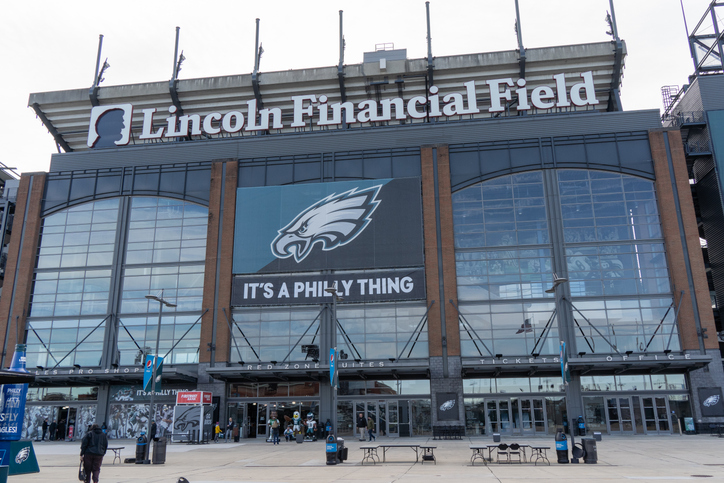The National Football League’s (NFL) Philadelphia Eagles announced that its home stadium, Lincoln Financial Field, has been certified as a LEED Platinum building for its commitment to operational sustainability. LEED, or Leadership in Energy and Environmental Design, is a globally recognized standard developed by the U.S. Green Building Council (USGBC).

Lincoln Financial Field is one of only two previously constructed stadiums in the NFL to achieve Platinum status—the highest of all LEED certifications—and the only one that is more than 10 years old. Since opening in 2003, Lincoln Financial Field has earned three levels of accreditation from the USGBC, going from LEED Silver in 2013 to LEED Gold in 2018 to now LEED Platinum in 2024.
“LEED is a transformative tool that ensures a building is designed and operated to achieve high performance, improve human health, and protect the environment,” said Peter Templeton, president and CEO of the USGBC. “By prioritizing sustainability, the Philadelphia Eagles are leading the way in their industry and helping USGBC continue towards our goal of green buildings for everyone within this generation.”
Lincoln Financial Field achieved LEED Platinum for implementing practical and measurable strategies and solutions in areas, including sustainable site development, water savings, energy efficiency, materials selection, and indoor environmental quality. Green buildings allow companies to operate more sustainably and give the people inside them a healthier, more comfortable space to work.
“Earning LEED Platinum from the U.S. Green Building Council validates the hard work and dedication we put forth into being an environmentally responsible organization,” said Jason Miller, SVP of operations at the Philadelphia Eagles.
Sustainability efforts that helped the Eagles and Lincoln Financial Field earn LEED Platinum include:
- First professional sports team in North America to install a hydrogen refueling station to power its passenger vehicles.
- First NFL stadium to recycle beverage containers through the utilization of reverse vending machines.
- 10,456 solar panels annually produce around 4 MW of clean energy.
- The installation of water filtration fountains has eliminated the use of more than 1 million plastic water bottles.
- Implemented a closed-loop recycling program that collects bottle caps and turns them into new material for use at the stadium.
- Achieved a 50% wattage reduction by replacing the stadium’s lights with patented, high-powered LED lighting technology.
- Diverts 99% of waste from landfills and operates on 100% clean energy.
More than 197,000 commercial and institutional projects are currently participating in LEED, comprising more than 29 billion square feet of construction space in all 50 states and 186 countries and territories.
ALSO READ: U.S. Green Building Council Seeks Public Input on New LEED Certification
